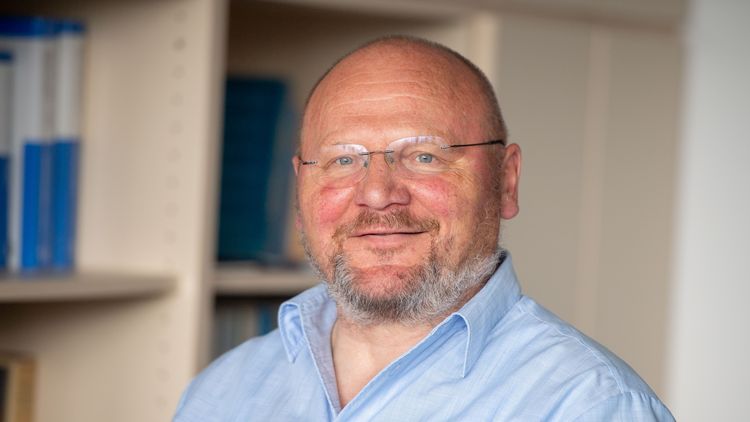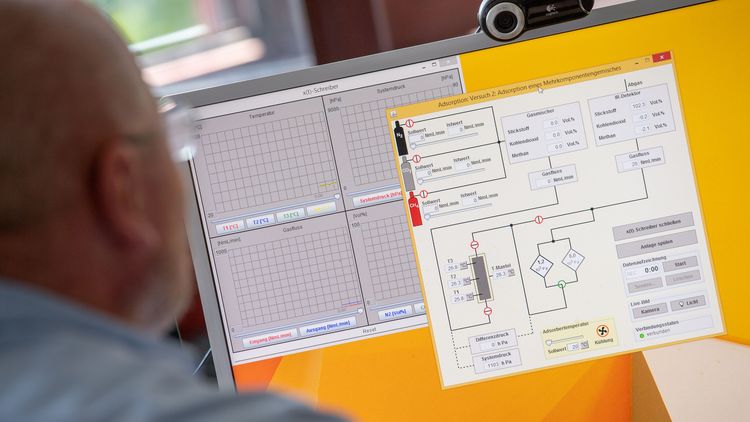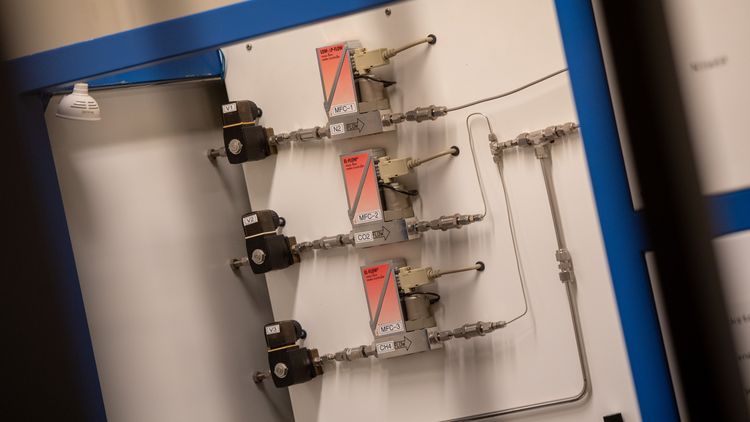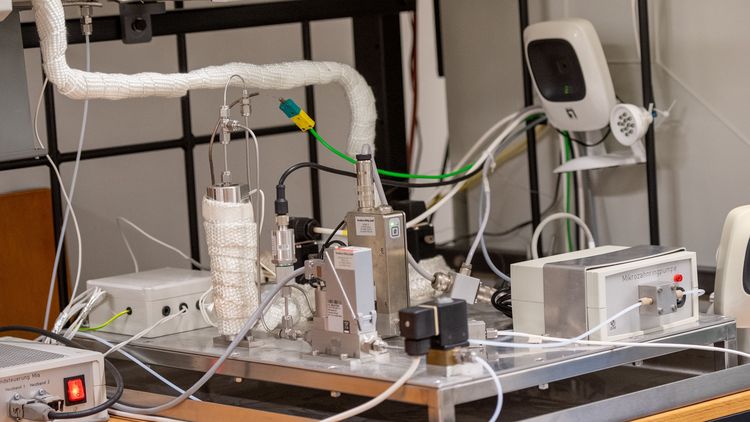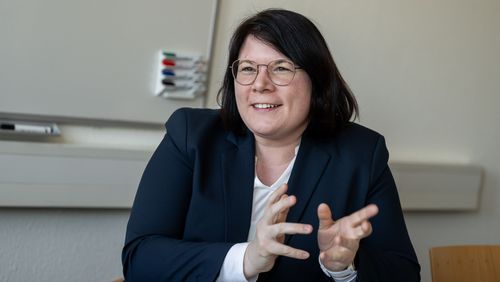Digital learning formats are booming. Chemists at the University of Oldenburg developed practical experiments that can be carried out via the internet in the early 2000s. Now other universities are using these experiments – and demand is growing.
The first online semester has come to an end and students and teachers have grown used to the new formats – for the most part. "Naturally, it’s very difficult to carry out practical laboratory experiments in the natural science subjects online," says Prof. Dr. Frank Rößner of the Institute of Chemistry. But Rößner, who heads the "Technical Chemistry" research group, has made it possible. In the practical laboratory course "Technical Chemistry" for Master's students, two experiments have already been running online for years. Both are the result of projects run by the Federal Ministry of Education and Research on the virtualisation of teaching. They showcase the advantages that digital learning formats in the natural sciences can offer even in "normal" times, supplementing classroom teaching.
Adjusting valves in a circuit diagram
“The two online experiments offer our chemistry students the opportunity to get a taste of practical work," explains Rößner. After all, even in their everyday working life many chemists don’t actually work in the laboratory but operate production facilities that are remotely controlled via computer and control systems. This is also how the Oldenburg online experiment titled IngA (Internet-Controlled Adsorption Device) works: the device, which can separate a mixture of two combined gases, is located in a special container in Building A1 at the university’s Haarentor Campus, and is fully automated.
"Students register on a website, receive access data and reserve measurement time slots," Rößner explains. The instructions for the experiment as well as background information can be found online on the education server ChemgaPedia. When they start the experiment, students see a circuit diagram on their screen which allows them to virtually adjust valves and control gas flows, the temperature and other variables. After several runs, which take about two hours in total, they receive the test results by email, and on the basis of the results they can prepare a protocol according to standard procedure. The second experiment MiA (Online Controllable Catalysis Device - dehydration of iso-propanol in a microchannel reactor) follows a similar procedure. In this experiment students learn about so-called microreaction technology. The software was programmed by Oldenburg computer science students in a project led by Prof. Dr. Andreas Winter and Prof. Dr. Oliver Theel.
"Back then we spent a long time looking for experiments that didn’t need much maintenance, didn’t require supervision and didn’t produce waste or wastewater," reports Rößner. Nowadays the biggest challenge for him and his team is to keep the software for both experiments running. "When we designed IngA in the early 2000s, a 56K modem was state of the art," he recalls.
Interest from Russia and South Africa
Rößner has recently seen an increase in demand for his two online experiments. "Universities in Hamburg, Augsburg, Leipzig, Dresden and Erlangen have already used the experiments in courses. And foreign universities have also integrated these experiments into their curricula, for example in Russia, the UK and South Africa," he reports. The instructions for the experiment are therefore now also available in English and Russian.
There is plenty of potential for online experiments, according to Rößner. He notes that the range of experiments available to students could be expanded if several universities were to team up and collaborate: "Each of the participating universities could offer their own special experiment that would normally be too expensive in the context of a practical laboratory course." This would give students more options to choose from, he says. Rößner’s team is already cooperating with the University of Leipzig: Oldenburg students carry out experiments from Leipzig in the field of technical chemistry online.

